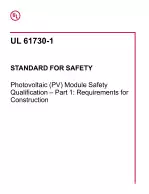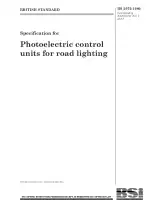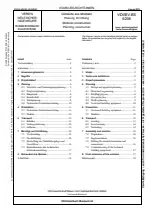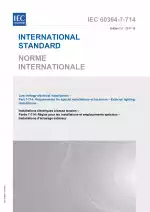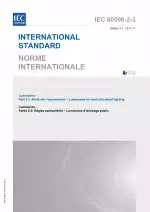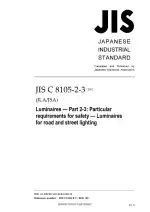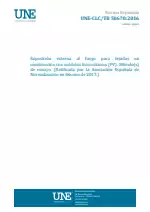UL 61730-1:2020 PDF Download
Standard EN SamplePhotovoltaic (PV) Module Safety Qualification - Part 1: Requirements for Construction
Also Known As:
The UL 61730-1:2020 standard is an international standard that specifies the fundamental construction requirements for photovoltaic modules. Its main objective is to ensure the safe electrical and mechanical operation of PV modules by addressing issues such as electrical shock, fire hazards, and personal injury due to mechanical and environmental stresses.
This standard applies to terrestrial photovoltaic modules that are intended for long-term operation in open-air climates. It covers a wide range of module materials, including crystalline silicon and thin-film modules. The maximum DC system voltage for PV modules covered by this standard is limited to 1,500 V.
It is important to note that while this standard defines basic requirements for various applications of PV modules, it does not encompass all national or regional codes. Specific requirements for building, marine, and vehicle applications are not included. Furthermore, this standard does not address requirements for PV modules integrated with power conversion equipment or monitoring/control electronics.
The UL 61730-1:2020 standard is designed to coordinate with the test sequences in the IEC 61215 series, allowing a single set of samples to be used for both safety and qualification testing of a PV module design. Its primary goal is to minimize the misapplication, misuse, and failure of PV modules or their components, which could lead to fire, electric shock, or personal injury.
It is worth noting that in addition to the requirements outlined in this standard, it is important to consider any additional construction requirements specified in relevant ISO standards or national/local codes that govern the installation and use of the PV modules in their intended locations.
| Edition | 1 |
| Language(s) | English |
| File Size | 1.8 MB |

